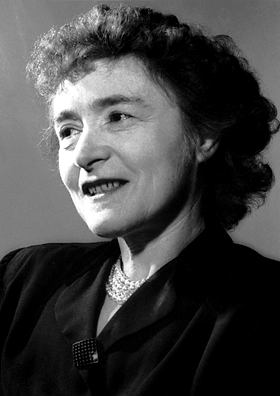
Buffalo has been too quite for too long about its rich history of medical innovation. The Cori’s are part of that story and their tale should be shared widely. In full transparency, their tenure in Buffalo is not a reflection of the medical community at its best. Gerty’s career was routinely stymied by a community not ready for female scientists, but it is still a story that should be known and shared.
In 1947, Gerty and Carl Cori became the first married couple to win the Nobel Prize in Physiology or Medicine, recognized for their groundbreaking research on carbohydrate metabolism. Their work on the Cori cycle explained how the body converts glucose into energy and stores it as glycogen—a discovery that laid the foundation for understanding diabetes and other metabolic disorders.
Gerty Cori also made history as the first woman to receive the Nobel Prize in Medicine. Her achievements came despite significant barriers: early in her career, she was offered only low-level positions while her husband advanced professionally. Nevertheless, Gerty persevered, demonstrating resilience and brilliance that helped change the landscape for women in science.
The Coris’ story is not just one of scientific brilliance but also of collaboration, determination, and breaking barriers. Their partnership exemplifies how curiosity and teamwork can lead to discoveries that transform lives.
As we reflect on their legacy, we’re reminded of the importance of fostering equity in science and innovation. How can we, in our fields, better support collaboration and break down barriers for the next generation of trailblazers?
Their inspiring journey underscores the timeless power of persistence and partnership in achieving meaningful progress.
